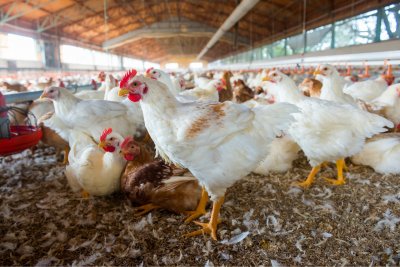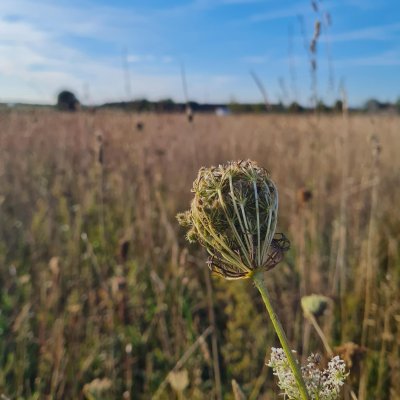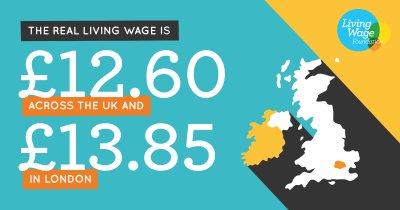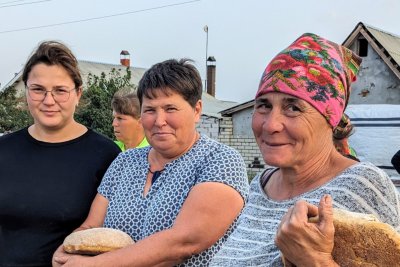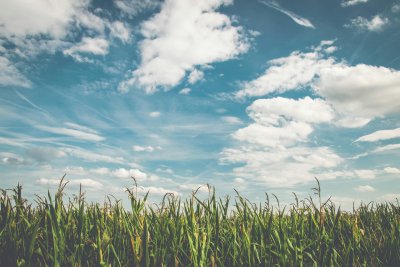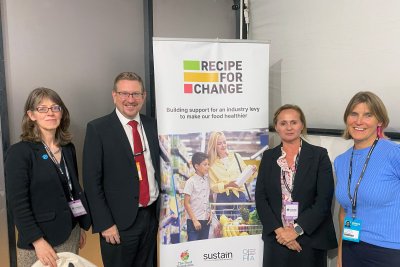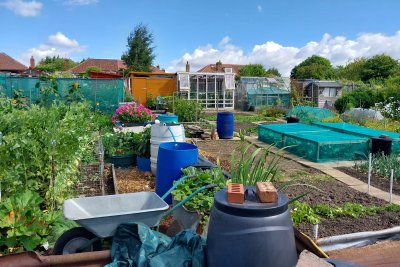In the last few decades our relationship with farmed animals has changed dramatically. In our second blog looking at international communities resisting intensive livestock farming we turn to Poland, and the work of the Polish Ecological Club (PEC) in Cracow - Gliwice Chapter.
In Poland, the shift in animal farming practices exemplifies what is happening globally. Where once smaller scale family farms raised animals using circular systems, chicken and pig production is now dominated by industrial-scale intensive operations. Poland ranks first in the EU in chicken production and fourth and seventh respectively for pork and beef. Between 2013 to 2020, total livestock numbers in the country increased by 39%, with the highest increase in chicken - up 58%.
Between 2010 and 2020, it is estimated that 340,000 small and medium sized livestock farms were closed while the number of factory farms doubled from 556 to 1169. By 2022, 58% pigs were in units of more than 1000 animals or more. Consolidation in the industry means a shrinking handful of corporations are profiting while the impacts on workers, health and the environment are felt by us all.
The first step: frame the debate, present the issues
In November 2023, the Polish Ecological Club Gliwice Chapter hosted a debate; ‘The Impact of Factory Farms on Our Lives’. Ewa Sufin-Jacquemart, chair of the Strefa Zieleni Foundation and a prominent green party activist, chaired and panelists set out clearly the climate and ecological impacts of intensive livestock production, as well as sustainable alternatives to factory farming.
Following the debate, a press release and social media campaign targeted awareness at the newly elected Polish government, calling for legislative changes to curb the expansion of factory farms.
Supporting local communities
The PEC collaborated closely with local activists to resist farm expansion. This included the village of Rogacze, Podlaskie voivodeship, where an investor planned to build 16 chicken coops housing 5,600,000 laying hens annually. In the village of Lipnik, Podlaskie voivodeship a developer planned an enormous 15ha slaughterhouse, surrounding the village from all sides. In the latter case, the investor backed out.
Comprehensive report on factory farm expansion
PEC published a report detailing the state and impact of factory farming in Poland. The report is published in Polish but can be translated online to any language for activists to get a sense of the data and characteristics of the industry.
Notable in the report is the identified link between intensive livestock and global financial systems, in particular the foreign capital investments propping up the expansion of the industry. These drive down costs and distort the market, preventing local farmers from competing. It also criticises the planning process, which has created the conditions for expansion of the industry. It excludes local communities and favours large corporations, who have the deeper pockets necessary to navigate the system.
The report recommends:
-
Systemic changes, in which the primary decision-making criterion is not monetary profit, but the collective benefit of society and the environment, including a different model of farming.
-
A moratorium on the construction of new intensive livestock farms in Poland – a part of a nationwide discussion about rural development, involving a wide range of stakeholders and covering a much broader scope than just the operation of farms.
-
Consumer education – consumer decisions significantly impact how meat is produced. They recommend that the first concrete step should be the introduction of green procurement policies for public sector food.
Detailed information and resources are available on PEC's website and their social media platforms. There is a video of the debate and the resources can be found here.
Currently, Poland is the biggest exporter of poultry in the EU and in the top 10 EU exporters of both beef and pork. However, this economic growth has a steep price; for years now, there has been a steady trend of small and medium farms closing down, with a simultaneous exponential increase of large industrial farms. This growing tendency towards an intensive farming model brings harsh consequences for both people and the environment: increased greenhouse gases emissions and exposure to odor, pollution of soil and surface waters, epidemiological risk, loss of biodiversity.
This situation is complex, but it is not too late – the solutions can be found!
Maria Staniszewska, Chairwoman of the Polish Ecological Club in Gliwice
Thanks to the tireless efforts of campaigners around the River Wye, the UK is beginning to wake up to the harm to rivers. However, focusing only on localised issues like nutrient pollution issues risks shifting the problem elsewhere, or worse – inferring that if units can be ‘cleaned up’, this model of farming is viable. PEC show how important it is to listen to, support, and elevate the voices of people impacted by the harm of factory farming, in this case local communities. In doing so we can and must unite across countries against the agribusinesses that seek to profit from harm to our people and planet.
This work was supported by Sustain through a grant from Heathy Food, Healthy Planet.
Industrial chicken farm. Credit: Photoarte: Shutterstock
Food for the Planet: Food for the Planet is helping local authorities, businesses and organisations take simple actions to tackle the climate and nature emergency through food.
